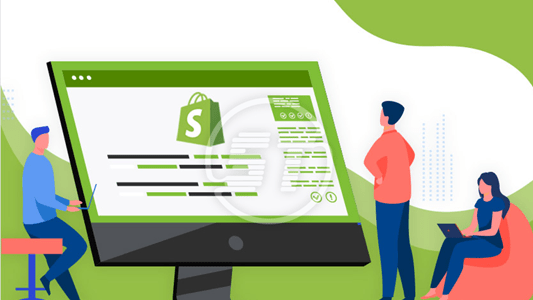WooCommerce vs. Shopify: Choosing the Right E-commerce Platform for Your Business
When it comes to setting up an online store, two of the most popular e-commerce platforms are WooCommerce and Shopify. Each platform has its strengths and is tailored to different types of users and business needs. In this blog, we’ll explore the key differences between WooCommerce and Shopify to help you decide which one is the best fit for your online store.
1. Overview
WooCommerce:
- WooCommerce is a free, open-source plugin designed for WordPress.
- It allows you to turn your WordPress site into a fully functional e-commerce store.
- Highly customizable and flexible, making it ideal for those who want complete control over their online store.
Shopify:
- Shopify is a standalone, hosted e-commerce platform.
- It provides a complete solution for setting up and managing an online store.
- User-friendly and straightforward, perfect for those who prefer a simpler, out-of-the-box solution.
2. Ease of Use
WooCommerce:
- Requires a WordPress site and some technical knowledge for setup.
- Offers extensive customization options but can be complex for beginners.
- Ideal for users comfortable with WordPress and looking for deep customization.
Shopify:
- Extremely user-friendly with an intuitive interface.
- Simplifies the process of setting up an online store with no technical skills required.
- Suitable for beginners or those who prefer a hassle-free setup experience.
3. Customization and Flexibility
WooCommerce:
- Provides unlimited customization options through themes and plugins.
- Offers the ability to modify every aspect of your store, including design and functionality.
- Beneficial for businesses with unique needs or those who want to create a highly personalized store.
Shopify:
- Offers a wide range of themes and apps, but customization is more limited compared to WooCommerce.
- Easier to manage with fewer customization options, ensuring stability and simplicity.
- Suitable for businesses looking for a more standardized approach to e-commerce.
4. Cost
WooCommerce:
- The plugin itself is free, but you need to pay for web hosting, domain name, and SSL certificate.
- Additional costs may include premium themes, plugins, and custom development.
- Can be more cost-effective for smaller stores but may become expensive with extensive customizations.
Shopify:
- Offers several pricing plans, starting from $29 per month, which includes hosting, SSL, and a domain (optional).
- Additional costs may include premium themes and apps.
- Transparent pricing with everything included in one package, making it easier to budget.
5. Scalability
WooCommerce:
- Highly scalable, but requires more resources and technical expertise as your store grows.
- You have complete control over the server environment and performance optimization.
- Best for businesses with in-house technical capabilities or those willing to hire developers.
Shopify:
- Scales effortlessly with your business growth, handling traffic spikes and large product catalogs with ease.
- Shopify Plus is available for enterprise-level businesses needing advanced features.
- Suitable for businesses of all sizes, offering scalability without the need for technical management.
6. SEO and Marketing
WooCommerce:
- Excellent for SEO due to the control it offers over every aspect of your site.
- Integration with powerful SEO plugins like Yoast SEO helps optimize your store.
- Ideal for businesses focused on content marketing and organic search traffic.
Shopify:
- Strong built-in SEO features and marketing tools.
- Integrates with popular marketing apps and platforms for email marketing, social media, and more.
- Suitable for businesses looking for an easy way to manage SEO and marketing efforts.
Conclusion
Choosing between WooCommerce and Shopify depends on your specific needs and preferences.
- WooCommerce is perfect for those who value flexibility, customization, and have the technical know-how to manage a WordPress site. It’s ideal for businesses that want a highly personalized store and are prepared to handle the complexities of a self-hosted solution.
- Shopify is an excellent choice for users who prioritize ease of use, simplicity, and a fully managed platform. It’s suitable for those who want a quick and straightforward setup with reliable support and scalability.
Ultimately, the best platform for your business will depend on your specific requirements, technical skills, and budget. Consider your long-term goals and choose the platform that aligns best with your vision for your online store.

